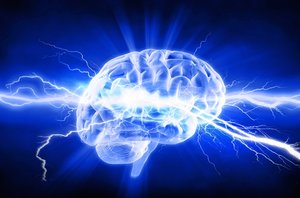Addictiveness

To help answer this question, let’s consider the following comments from 2 of the world’s leading experts:
“It's more difficult to withdraw people from benzodiazepines than it is from heroin – it just seems that the dependence is so ingrained and the withdrawal symptoms you get are so intolerable that people have a great deal of problem coming off. The other aspect is that with heroin usually the withdrawal is over within a week or so. With benzodiazepines a proportion of patients go on to long-term withdrawal and they have very unpleasant symptoms for month after month and I get letters from people saying that it can go on for 2 years or more. Some of the tranquilliser groups can document people who still have symptoms 10 years after stopping.” (Source: Professor Malcolm Lader, BBC Radio 4, Face the Facts, broadcast on March 16, 1999)
In 1978, Prof. Lader called these drugs "the opium of the masses" because of the very high prescribing rates. In 1981 he warned that in the context of tranquilliser addiction "there is an epidemic in the making" and in 1988 he stated that this was the biggest medically-induced problem of the late 20th Century (Source: http://www.benzo.org.uk/lader2.htm).
Professor Malcolm Lader: Emeritus Professor of Clinical Psychopharmacology, Institute of Psychiatry, University of London, England, Adviser to the World Health Organisation on drugs used in psychiatry (Ran a Benzodiazepine Withdrawal Clinic in London and has published more than 100 papers on the subject of benzodiazepines).
“Tolerance and dependence can develop if benzodiazepines are used regularly for longer than 2-4 weeks. There is no minimum dose, for example tolerance and dependence have been observed after the regular use of 2.5-5mg of diazepam.”
“The Committee on Safety of Medicines and the Royal College of Psychiatrists in the UK concluded in various statements (1988 and 1992) that benzodiazepines are unsuitable for long-term use and that they should in general be prescribed for periods of 2-4 weeks only.”
Professor Heather Ashton: Emeritus Professor of Clinical Psychopharmacology, University of Newcastle upon Tyne, England.
"Withdrawal symptoms (e.g. rebound insomnia) can appear following cessation of recommended doses after as little as one week of therapy.”
Lorazepam [package insert]. Bridgewater, NJ: Biovail Pharmaceuticals, Inc; Rev 2007.
Top of Page
To help shine some light on this, please refer to the following statement provided by Prof. Ashton which was noted in article 1.3 of Addiction Report 4 and submitted to the Tokyo High Court. This was in response to the defense’s claim that Tofisopam is not addictive.
“All the benzodiazepines are non-selective and act on all types of GABA/benzodiazepine receptors. Valium acts on exactly the same receptors as Klonopin etc. The main reason that benzodiazepines have somewhat different structures is not so much that they act on different receptors (they don't) but so that the drug companies can call them different drugs.
They remain chemically benzodiazepines (a chemical name). Although they may differ in binding affinity for the receptors, potency, elimination time, etc., they all act on all subclasses of benzodiazepine receptors. Animal studies have consistently shown that all benzodiazepines are capable of inducing physiological dependence after chronic administration.
The drug Tofisopam is a benzodiazepine derivative manufactured in China. It has anxiolytic properties but is said not to have sedative, anticonvulsant, or muscle relaxant properties. I have no experience with this drug but it is almost certain that in some doses within the therapeutic range the drug will turn out to be addictive and, if used long-term, will cause withdrawal symptoms.
Non-benzodiazepines which have been claimed to have specific effects (such as zopiclone) have turned out to have all the same actions as benzodiazepines, including dependence (addiction) and withdrawal effects.
Furthermore, any drug that alleviates anxiety, (e.g. alcohol, barbiturates and the earlier tranquillizers) is almost certain to cause dependence in some people. Even antidepressant drugs which relieve anxiety cause withdrawal effects when stopped.”
Top of Page
In response to comments regarding definitions of “dependency” and “addiction”, Prof. Ashton has kindly provided the following explanation.
Dear Wayne,
Language/words are often confusing. Many benzo-dependent users in England use the phrase 'involuntary benzo addiction' meaning doctor's prescription-induced dependency. The All Parliamentary Group in the House of Commons used the acronym APPGITA meaning All Parliamentary Group for Involuntary Tranquilliser Addiction until recently.
But I do not see any real difference between drug addiction (however caused) and drug dependence (however caused). I don't think anyone goes out deliberately to self-cause addiction or dependence - even a recreational heroin user.
You did well to use ‘dependence/addiction’ on your website.
Best wishes, Heather
Top of Page
To help you get a better idea as to whether or not you (or someone you know) may have become dependent / addicted to prescription benzodiazepines or similar drugs, I recommend using the following materials as a guide.
Also, it would pay to bear this in mind:
“When tolerance develops, “withdrawal” symptoms can appear even though the user continues to take the drug. Thus the symptoms suffered by many long-term users are a mixture of adverse effects of the drugs and "withdrawal" effects due to tolerance.”
Professor Heather Ashton: Emeritus Professor of Clinical Psychopharmacology, University of Newcastle upon Tyne, England.
The DSM-IV-TR Diagnostic Criteria for Drug (substance) Dependency / Addiction is the standard used by the American Psychiatric Association and is recognized worldwide. There are 7 Criteria of which 3 need to be met for a diagnosis of substance dependence to be determined.
Chapter One of The Ashton Manual (Dependency)
Chapter One of The Ashton Manual also gives some useful indicators for dependency / addiction. Also, see Tolerance on the same page.
Dr. Judson’s findings in my case
Doctor Judson’s observation below shows that just the duration and dosages alone can give a good indication about the possibility of dependency having formed.
[Quote] “Before we even begin to consider the content of Wayne’s patient files, his symptoms, the overall clinical picture and the application of the DSM-IV-TR, we can already determine that there was at least a 50~100% chance that he was dependent simply based on the duration and dosages of his prescriptions alone.” [Unquote]
Duration: 7~10 months
Dosage: 21~42mg/day (diazepam equivalent)
Dr. Judson’s diagnostic proceedure
In Section Two of Addiction Report One, Dr. Judson (specialist in addiction medicine) outlined the procedure he used to determine the dependency diagnosis in my case. This may help serve as some kind of reference.
Dr. Judson’s application of the DSM-IV-TR
In Section Two of Addiction Report Three, Dr. Judson shows how he applied the DSM-IV-TR Diagnostic Criteria for Drug (substance) Dependency / Addiction in my case. This may help serve as some kind of reference.
Top of Page
Not Just Benzos...
Although my case and this website focus on benzodiazepines, there is also a great deal of other psychotropic drugs (e.g. antidepressants, antipsychotics, opiates for pain etc) being mindlessly overprescribed to people from all walks of life including children, the elderly, disaster victims etc. which is seriously affecting all corners of society (See Effects on Us All).
WARNING
- Any information given on this site should not be substituted for the advice of a physician who is well-informed about benzodiazepine addiction and withdrawal.
- All information given here is therefore to be followed at your own risk (See Disclaimer).
- Abrupt cessation of benzodiazepines may be very dangerous. Always consult your prescriber if you are considering making any changes.

The primary language of this website is English. Japanese appears as translations only (except for some original court documents).
These translations have been done by many different translators including me. Therefore, there are differences in quality and styles.
Please understand that I am not native Japanese and subsequently there are parts that may sound unnatural in Japanese.
“If any drug over time is going to just rob you of your identity [leading to] long, long term disaster, it has to be benzodiazepines.”

Dr John Marsden,
Institute of Psychiatry, London
November 1, 2007
“Benzos are responsible for more pain, unhappiness and damage than anything else in our society.”

Phil Woolas MP,
Deputy Leader of the House of Commons,
Oldham Chronicle, February 12, 2004
“The benzodiazepines are probably the most addictive drugs ever created and the vast army of enthusiastic doctors who prescribed these drugs by the tonne have created the world's largest drug addiction problem.”

The Drugs Myth, 1992
“It is more difficult to withdraw people from benzodiazepines than it is from heroin.”

Professor Malcolm H Lader
Institute of Psychiatry London
BBC Radio 4, Face The Facts
March 16, 1999
“Clearly, the aim of all involved in this sorry affair is the provision of justice for the victims of tranquillisers.”

THE WRITING IS
ON THE WALL
for benzodiazepine use

Dr Andrew Byrne
Redfern NSW Australia
Benzodiazepine Dependence, 1997
“If there's a pill, then pharmaceutical companies will find a disease for it.”

Jeremy Laurance,
The Independent, April 17, 2002.
“To rely on the drug companies for unbiased evaluations of their products makes about as much sense as relying on beer companies to teach us about alcoholism.”

Marcia Angell MD
(Former) Executive Editor New England Journal of Medicine
“Withdrawal symptoms can last months or years in 15% of long-term users. In some people, chronic use has resulted in long-term, possibly permanent disability.”

Professor C Heather Ashton
DM, FRCP,
Good Housekeeping, 2003









